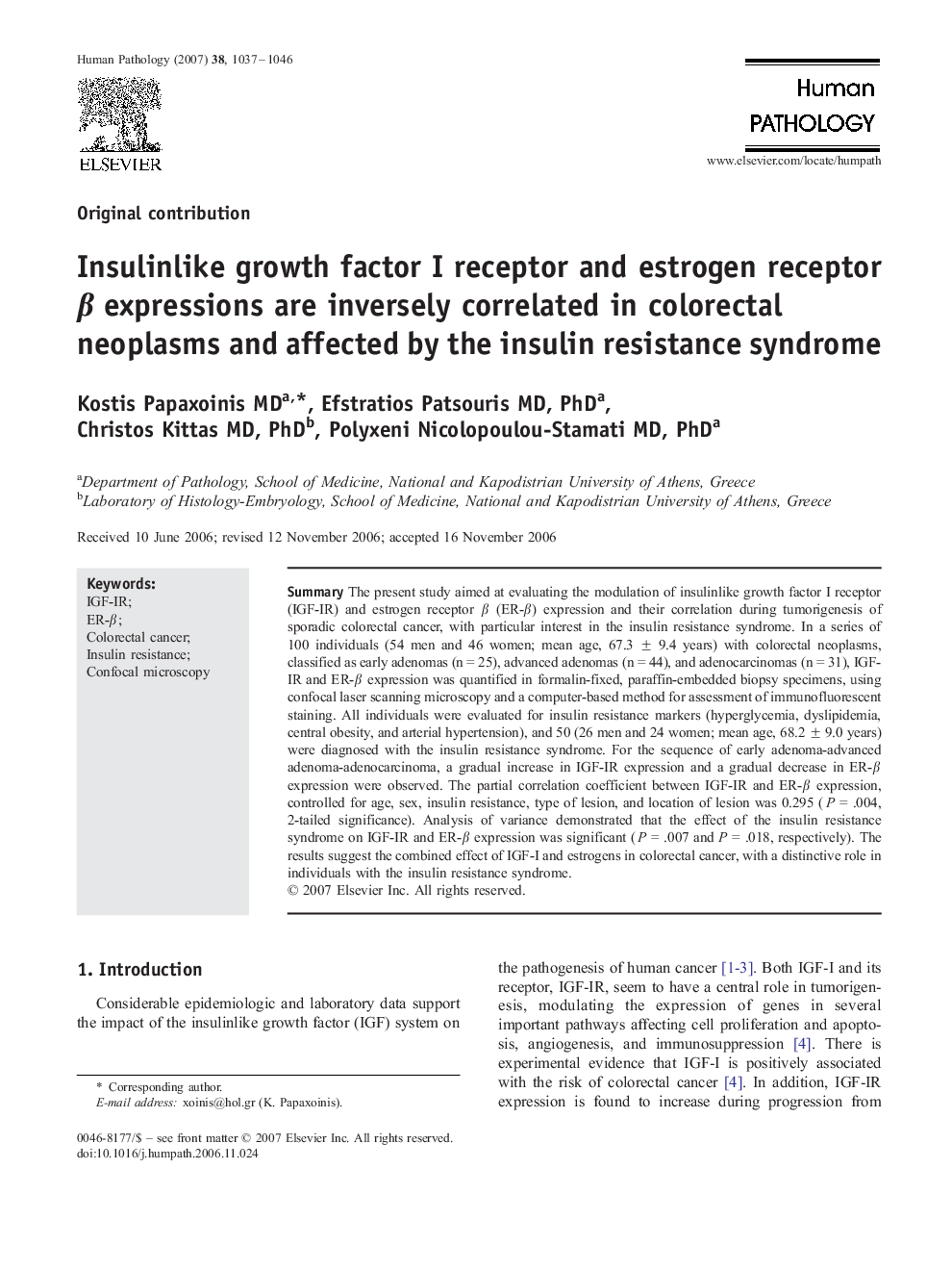| Article ID | Journal | Published Year | Pages | File Type |
|---|---|---|---|---|
| 4135492 | Human Pathology | 2007 | 10 Pages |
SummaryThe present study aimed at evaluating the modulation of insulinlike growth factor I receptor (IGF-IR) and estrogen receptor β (ER-β) expression and their correlation during tumorigenesis of sporadic colorectal cancer, with particular interest in the insulin resistance syndrome. In a series of 100 individuals (54 men and 46 women; mean age, 67.3 ± 9.4 years) with colorectal neoplasms, classified as early adenomas (n = 25), advanced adenomas (n = 44), and adenocarcinomas (n = 31), IGF-IR and ER-β expression was quantified in formalin-fixed, paraffin-embedded biopsy specimens, using confocal laser scanning microscopy and a computer-based method for assessment of immunofluorescent staining. All individuals were evaluated for insulin resistance markers (hyperglycemia, dyslipidemia, central obesity, and arterial hypertension), and 50 (26 men and 24 women; mean age, 68.2 ± 9.0 years) were diagnosed with the insulin resistance syndrome. For the sequence of early adenoma-advanced adenoma-adenocarcinoma, a gradual increase in IGF-IR expression and a gradual decrease in ER-β expression were observed. The partial correlation coefficient between IGF-IR and ER-β expression, controlled for age, sex, insulin resistance, type of lesion, and location of lesion was 0.295 (P = .004, 2-tailed significance). Analysis of variance demonstrated that the effect of the insulin resistance syndrome on IGF-IR and ER-β expression was significant (P = .007 and P = .018, respectively). The results suggest the combined effect of IGF-I and estrogens in colorectal cancer, with a distinctive role in individuals with the insulin resistance syndrome.
